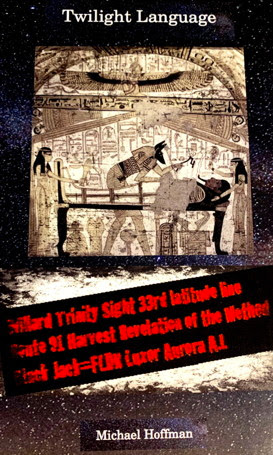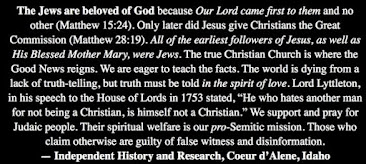Half a Millennium of Total Depravity (1517-2017):
A Critique of Luther’s Impact on the Eve of His “Catholic” Apotheosis
24th Annual Roman Forum Summer Symposium
Gardone Riviera (Italy), June 27th-July 8th, 2016
(Michael Hoffman’s comment follows this statement)
Our civilization is so sick that even the best efforts to prop up its few tottering remnants manifest the pathetic illness that has step by step brought the entire structure crumbling down. The disease in question is a willful, prideful, irrational, and ignorant obsession with “freedom”. But this is a malady that gained its initial effective entry into Christendom in union with the concept of the natural world as the realm of “total depravity”.
It is crucially important that we recognize both the ultimate responsibility of this hideous willful liberty for the destruction of our Classical and Christian culture as well as the role played by the idea that “incarnated” it historically in our midst for two reasons. The first is so that we can attempt seriously to rid ourselves of their monstrous influence over our own minds, souls, and bodies. The second is because a massive attempt to masquerade the truth regarding their real character and alliance will be mounted in conjunction with the five hundredth anniversary of Martin Luther’s devastating appearance on the public scene in 2017: and this for the sake of maintaining their nefarious impact upon believers and delivering the Faith its coup de grace as a meaningful social force.
Allow me to cite Philip Hughes regarding Luther and his antecedents as a means of driving home the point that I wish to make in this brief piece:
All those anti-intellectualist, anti-institutional forces that had plagued and hindered the medieval Church for centuries, whose chronic maleficent activity had, in fact, been the main cause why—as we are often tempted to say—so little was done effectively to maintain a generally higher standard of Christian life; all the forces that were the chronic distraction of the medieval papacy, were now stabilized, institutionalized in the new reformed Christian Church. Enthronement of the will as the supreme human faculty; hostility to the activity of the intelligence in spiritual matters and in doctrine; the ideal of a Christian perfection that is independent of sacraments and independent of the authoritative teaching of clerics; of sanctity attainable through one’s own self-sufficing spiritual activities; denial of the truth that Christianity, like man, is a social thing;—all the crude, backwoods, obscurantist theories bred of the degrading pride that comes with chosen ignorance, the pride of men ignorant because unable to be wise except through the wisdom of others, now have their fling. Luther’s own special contribution—over and above the key doctrines that set all this mischief loose—is the notion of life as radically evil. (Hughes, A History of the Church, Sheed & Ward, 1949, III, 529).
Hughes eloquently stresses the central fact that our underlying problem is pre-Lutheran in origin. In other words, 1517 is not the source of our woe---any more, for that matter, than 1962 and the opening of Second Vatican Council was. All of the spiritual, intellectual, political, and social diseases that had hovered for centuries about the Camp of the Saints had gathered together, ready for injection into the lymphatic system of Catholic Christendom as one “mega malady”, already long before that date. All of these ultimately reflected a revulsion over the need for the individual and his entire environment to be corrected, perfected, and transformed under the Kingship of Christ with the aid of Faith, Grace, Reason on the one hand, and social authority, both supernatural and natural, on the other. Anyone in 1516 looking for a simple explanation for why he should reject these aids had available to him an embarrassment of arguments from a myriad of fonts indicating that the only thing that really mattered was the individual and his willful feelings; and that relying upon these alone was somehow the sole pathway to pleasing God.
Nevertheless, the conflicted mind of the Late Middle Ages clearly needed someone with the outlook and the talented rhetorical venom of a Luther effectively to inject this mega malady into the lymph of Christendom. Christian man was too aware of the reality of sin to leap directly into an adulation of his individual willfulness. Luther’s concept of the “total depravity” of the individual and the world in which he lived after Original Sin gave Everyman the pious entry into the obsession with liberty that was required. After all, it seemed so humble to argue for each believer’s personal need to rely solely on God’s grace to save him; for his need to affirm that “freedom” from “enslavement” to “the despotism” of “the Law” that allowed him to avoid a “hopeless” and ultimately spiritually arrogant attempt to bend his individual, life long, workaday thoughts and actions to fall in line with the commands of Christ.
Still, it proved to be very easy over the course of a couple of generations for this negative definition of “liberty”---a “freedom” from the Law---to be transformed, in the Enlightenment, into the means for a positive new and redemptive order of things. In short, it did not take long for a freedom from restraints upon the lawless, individual willfulness of Luther’s totally depraved mankind to be seen as the providential tool for molding unbridled human thoughts and actions into the building blocks of a new Age of Gold. In other words, the more that a freedom from restraints actually ensured that the truly sinful passions of mankind were all released in order to allow flawed individuals truly to became totally depraved, the more that that depravity was now looked upon as something intrinsically wonderful, good, and even pleasing to God.
It is precisely because this venomous attempt to build a civilization upon a freedom from efforts to fight Original Sin and its willful effects upon individuals is so tempting that it has infected almost all of us in some way or another. We almost all fall prey to the enticement simply to pick what “liberty” most appeals to our particular passion, declare it pleasing to God, willfully condemn whichever application of the same principle we find personally unacceptable when used by others, and ignore the innately poisonous nature of the entire concept. And, quite frankly, we almost all fall prey to the cynical temptation to mobilize the “total depravity” argument anew when we chuckle over the naïve, utopian vision of opponents who want to use law and authority to help make people virtuous in realms where we want “liberty”. But blithely making common cause with “liberty” in a world that did not have to be totally depraved but is making every effort to become so is riding on the back of a willful monster---with the current self-destructive appeal to religious liberty at the top of the list. It is only the positive liberty to use our Faith, Grace, our Reason, and the help of social authorities, both supernatural and natural, to correct and transform ourselves under the Social Kingship of Christ that can lead to a life worth living in this world and to eternal happiness in the next.
Sad to say, it is absolutely certain that most of our ecclesiastical leaders, foot soldiers of the Zeitgeist that they are, will turn 2017 into a year long paean to the accomplishments of Luther & Company and “all those anti-intellectualist, anti-institutional forces”; “all the crude, backwoods, obscurantist theories bred of the degrading pride that comes with chosen ignorance, the pride of men ignorant because unable to be wise except through the wisdom of others” that Philip Hughes tells us lay behind them for centuries. It is our duty as Traditionalist Catholics to steel ourselves against the lies that are to come concerning the wonderful value of such hideous, willful principles that now have “had their fling” for five hundred years. It is our duty to hammer home the evil they have caused. Because that five hundred year ignorant, willful, individualist cancer has spread everywhere throughout the lymph of Christendom into every institution and everyone’s mindset, believing Catholics should spend the next two years helping those less aware among us to gird their loins. 2017---like 1517---is going to be a trial for all of us. And it is an awakening to this frightful nightmare that the 24th Annual Summer Symposium of the Roman Forum will seek to assure.
This year's lectures on "Half a Millennium of Total Depravity" will be going into a book to be published by Angelico Press. We very much intend it to serve as a means of fighting the campaign to glorify Luther which will indeed characterize 2017.
— John C. Rao (D.Phil., Oxford University)
Associate Professor of History, St. John’s University
Chairman, Roman Forum
Associate Professor of History, St. John’s University
Chairman, Roman Forum
11 Carmine St., Apt. 2C New York, NY 10014
http://www.romanforum.org/symposium/summer2016/
_________________________________________
Michael Hoffman’s comment: In all of John Rao’s preceding remarks there is no allusion to the Lutheran civilization that produced J.S. Bach and Johann Andreas Eisenmenger (author of the magisterial Entdecktes Judenthum), to name but two of the West’s most outstanding men. Instead, there is a resort to the all too familiar canard, insinuated here, that Luther is synonymous with the coming of a supercharged avarice ("did not take long for a freedom from restraints upon the lawless, individual willfulness of Luther’s totally depraved mankind to be seen as the providential tool for molding unbridled human thoughts and actions into the building blocks of a new Age of Gold”). Such an accusation, to have utility, must ignore the "Age of Gold’s" two notorious agents, both contemporaries of Luther: the hideous Medici Pope Leo X who sanctioned not only the sale of indulgences, but Monte-bank usury which started the gradualist erosion of the Church’s immemorial dogma against profit on loans; and Johann Eck, Luther’s nemesis, who advocated a 5% rate of usury in his role as a theological prostitute for the fabulously wealthy Catholic banking house of Fugger. These facts are elucidated in this writer’s book, Usury in Christendom: The Mortal Sin that Was and Now is Not, which is studiously ignored by Catholics like Dr. Rao. Proceeding from Rao’s tack, the “traditional” Catholic assault on Luther will fail. There are ample grounds for criticizing and questioning Luther, but resorting to the old libel that his life’s work enhanced the "Age of Gold" is not one of them. Martin Luther is one of the most illustrious and principled opponents of profit on loans and the ruinous Money Power domination that compound interest would engender, of anyone in Renaissance Christendom. To suggest otherwise is rank ignorance and discredits whoever would preach these libels to anyone other than the members of their own anti-Lutheran choir.
_________________________________________













1 comment:
Christian Liberty must have an economic aspect. The use of slave money (owed interest on paper) will enslave. Doing it in the name (authority) of constituents without restoring lawful tender is fraud.
Post a Comment